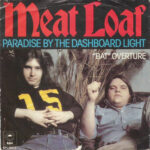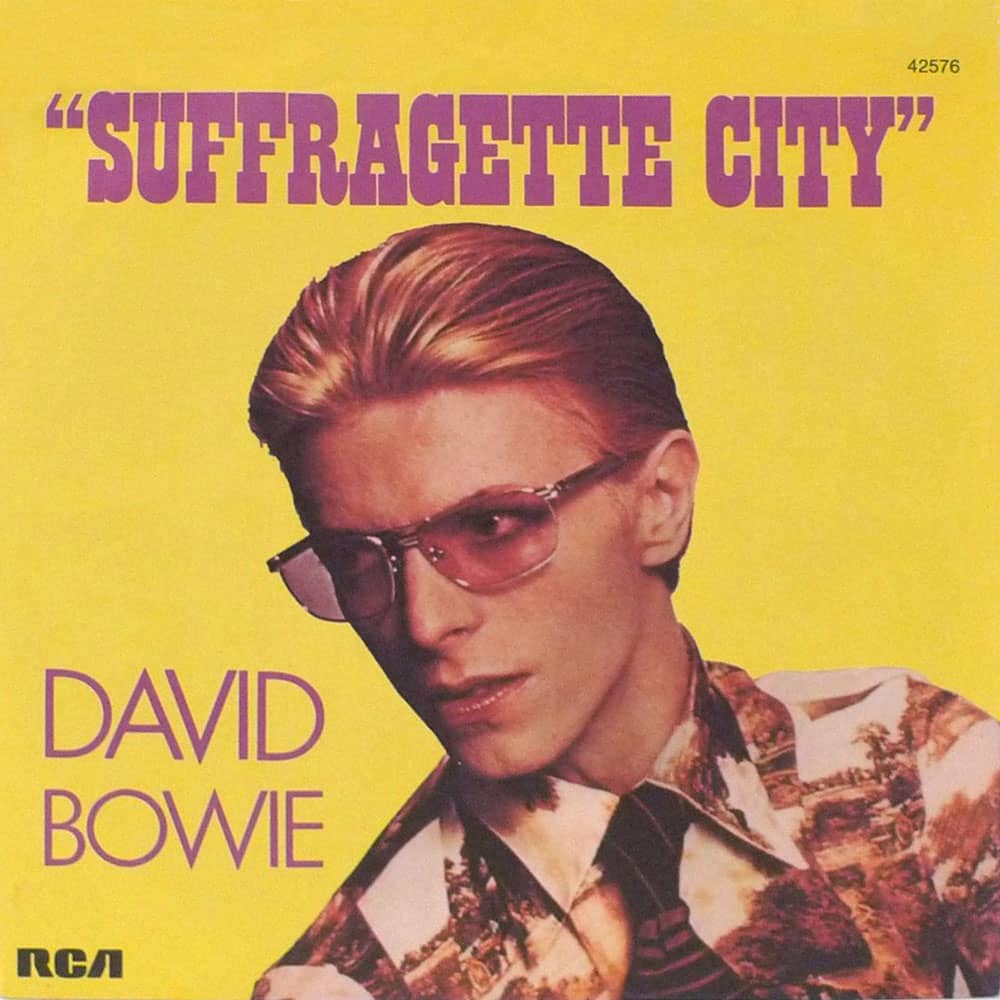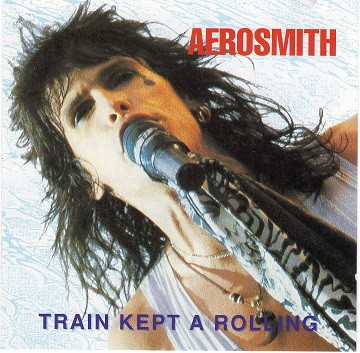 Meat Loaf’s “Paradise By The Dashboard Light” stands as one of the most audacious and unforgettable tracks in rock history, a sprawling operatic rock epic that captures the intensity, confusion, and lustful longing of teenage romance with bombastic flair and theatricality. Released in 1977 as part of the album Bat Out of Hell, the song exemplifies the collaboration between Meat Loaf, songwriter Jim Steinman, and a cadre of musicians who transformed rock music into a narrative spectacle. Unlike conventional love songs that encapsulate a single emotion or moment, “Paradise By The Dashboard Light” is a multi-act journey, with a storyline, distinct characters, and a pacing that mirrors the ebbs and flows of teenage desire and hesitation. From the opening piano chords to the climactic rock crescendo, the track feels like a mini rock opera compressed into seven-and-a-half minutes, complete with youthful exuberance, comic tension, and dramatic urgency. Its very title evokes a specific, intimate scene—two teenagers trapped in a car, their hormones running wild, the dashboard light illuminating a moment that is simultaneously tender, awkward, and fraught with the intensity of first love.
Meat Loaf’s “Paradise By The Dashboard Light” stands as one of the most audacious and unforgettable tracks in rock history, a sprawling operatic rock epic that captures the intensity, confusion, and lustful longing of teenage romance with bombastic flair and theatricality. Released in 1977 as part of the album Bat Out of Hell, the song exemplifies the collaboration between Meat Loaf, songwriter Jim Steinman, and a cadre of musicians who transformed rock music into a narrative spectacle. Unlike conventional love songs that encapsulate a single emotion or moment, “Paradise By The Dashboard Light” is a multi-act journey, with a storyline, distinct characters, and a pacing that mirrors the ebbs and flows of teenage desire and hesitation. From the opening piano chords to the climactic rock crescendo, the track feels like a mini rock opera compressed into seven-and-a-half minutes, complete with youthful exuberance, comic tension, and dramatic urgency. Its very title evokes a specific, intimate scene—two teenagers trapped in a car, their hormones running wild, the dashboard light illuminating a moment that is simultaneously tender, awkward, and fraught with the intensity of first love.
Musically, the song is a masterclass in tension and release. It opens with a sense of anticipation, the piano laying down a simple yet emotive motif, joined gradually by drums and bass that establish a pulsing undercurrent of desire. Meat Loaf’s vocals enter with an urgency that conveys both excitement and nervousness, capturing the emotional volatility of adolescent romance. Each section of the song is carefully orchestrated, shifting seamlessly between ballad-like tenderness, playful narrative interjections, and full-blown rock bombast. The production, lush and layered, allows each element—from the backing instruments to the dramatic vocal lines—to shine without overwhelming the narrative. The musical shifts mirror the story’s progression, with moments of tender confession, heightened lust, and frantic insistence building to a climactic finale that is as overwhelming as it is cathartic.
Lyrically, “Paradise By The Dashboard Light” is remarkable for its specificity and narrative detail. The song tells a story that many listeners can relate to on a fundamental level, even if the particulars are exaggerated for dramatic effect. The dialogue between Meat Loaf and Ellen Foley, who plays the female counterpart, creates a theatrical tension, capturing the back-and-forth of desire, persuasion, and hesitation. Lines like “I remember every little thing as if it happened only yesterday” set the tone for the narrative, evoking nostalgia and intensity simultaneously. The lyrics oscillate between earnest longing and playful exaggeration, capturing the complex interplay of lust, fear, and anticipation that defines the teenage experience. This narrative specificity, paired with Steinman’s talent for dramatization, turns what could have been a simple story of teenage romance into a compelling musical theater piece that continues to captivate decades later.
The song’s structure is unusual, defying the standard verse-chorus-verse format of most rock tracks. Instead, it unfolds as a multi-section narrative with shifting tempos and dynamics that heighten the emotional stakes. There is an almost cinematic quality to the arrangement, with each instrument and vocal line contributing to the unfolding drama. Guitar riffs cut through the orchestration like bursts of raw energy, while the rhythm section maintains a relentless drive that mirrors the increasing tension of the story. The inclusion of sound effects, like the spoken-word baseball play-by-play that allegorically describes the act of sexual intercourse, adds both humor and a surreal dimension, turning the track into an elaborate, almost absurd musical tableau. This level of ambition—blending rock, narrative, and theatricality—was unprecedented at the time and remains a defining feature of the song’s enduring appeal.
Meat Loaf’s vocal performance is central to the song’s impact. His voice, at once powerful, expressive, and slightly exaggerated, conveys the full spectrum of adolescent urgency: desperation, pleading, exhilaration, and eventual resignation. The theatricality of his delivery, coupled with Foley’s equally dramatic contributions, transforms the song from a simple tale of lust into a complex exploration of human emotion and desire. Their vocal interplay captures the push-and-pull dynamic of romance, with Foley’s retorts often serving as grounding counterpoints to Meat Loaf’s larger-than-life declarations. This duet creates a dramatic tension that keeps listeners invested, making the song feel like a live, unfolding scene rather than a static recording.
The baseball commentary section of the song deserves particular attention for its inventiveness. Delivered by Phil Rizzuto, a well-known sports commentator, this interlude functions as a metaphorical device, translating the sexual tension into the language of sports. The absurdity of the comparison—equating bases to stages of intimacy—injects humor and whimsy into the track, highlighting Steinman’s flair for blending high drama with playful exaggeration. Far from being a distraction, this section heightens the emotional intensity by giving listeners a metaphorical lens through which to interpret the story. It is audacious, unique, and unforgettable, contributing to the track’s reputation as a singular achievement in rock songwriting.
The song also serves as a cultural touchstone, capturing the teenage experience with a combination of humor, honesty, and theatrical exaggeration that resonates across generations. Its themes of lust, hesitation, persuasion, and commitment are universally recognizable, even if the framing is larger than life. The track’s ability to capture the intensity of adolescent emotion, while simultaneously exaggerating and dramatizing it for entertainment value, makes it a rare blend of relatability and spectacle. It is at once over-the-top and deeply sincere, a balancing act that few songs achieve with such enduring effect.
“Paradise By The Dashboard Light” is emblematic of Meat Loaf’s broader artistic persona: theatrical, larger-than-life, and unafraid to embrace excess. The song’s ambitious length, multiple narrative sections, and emotional intensity reflect the artist’s willingness to push boundaries, both musically and dramatically. This approach challenges listeners, asking them to engage with a song that is not merely a few minutes of catchy hooks but an extended, immersive experience. The result is a track that commands attention, rewards repeated listening, and remains emotionally compelling decades after its release.
The instrumentation throughout the song is carefully crafted to support the narrative, with each section receiving its own musical signature. The opening verses are subdued, reflecting the nervous anticipation of the protagonists. As the tension escalates, so too does the instrumentation: drums become more insistent, guitars grow louder and more aggressive, and the keyboards add flourishes that heighten the drama. This dynamic interplay between story and sound demonstrates Steinman’s genius as a composer and Meat Loaf’s ability to embody that composition fully. The musical shifts mirror the psychological states of the characters, making the song as much a study in emotional architecture as it is a rock epic.
The track’s influence on popular music and culture is profound. Its operatic ambition paved the way for future rock epics, showing that commercial music could embrace narrative complexity, dramatic structure, and theatrical performance. Artists across genres—from rock to musical theater—have cited Meat Loaf and Jim Steinman’s work as inspirational, demonstrating the lasting relevance of their approach. “Paradise By The Dashboard Light” remains a template for blending humor, drama, and musical sophistication, proving that a rock song can be a narrative tour de force without sacrificing accessibility or entertainment value.
Live performances of the song amplify its theatricality. Meat Loaf’s stage presence, combined with elaborate instrumentation and expressive delivery, transforms the track into a multi-sensory spectacle. Audience engagement is integral, as fans respond to the humor, tension, and climactic moments, often singing along with the dialogue and choruses. The song’s structure allows for improvisation and embellishment in live settings, making each performance a unique experience while preserving the essence of the original recording. This adaptability contributes to the song’s enduring popularity, ensuring that it remains a highlight of concerts and retrospectives alike.
The song’s enduring appeal also lies in its capacity to balance excess with emotional resonance. While the track is undeniably over-the-top in its length, structure, and vocal delivery, it never feels gratuitous. Every moment, no matter how exaggerated, serves the narrative and emotional arc. The humor, theatricality, and bombastic musical choices are all in service of capturing the intensity of teenage desire and the absurdity, excitement, and awkwardness inherent in romantic pursuit. This balance between spectacle and sincerity is what elevates the track from novelty to masterpiece, allowing listeners to experience both the fun and the emotional truth of the story simultaneously.
Meat Loaf’s collaboration with Jim Steinman is central to the song’s success. Steinman’s songwriting provides the narrative architecture, dramatic pacing, and lyrical inventiveness that give the song its operatic grandeur. Meat Loaf, in turn, brings the physicality, vocal power, and theatrical interpretation necessary to bring Steinman’s vision to life. The interplay between songwriter and performer is seamless, demonstrating a rare synergy that few musical partnerships achieve. The song exists as a testament to what can happen when narrative ambition meets vocal artistry and dramatic interpretation.
The cultural resonance of “Paradise By The Dashboard Light” is further enhanced by its ability to evoke nostalgia while remaining engaging to new audiences. Its references, humor, and depiction of teenage longing are timeless, even as its stylistic flourishes anchor it firmly in the 1970s rock landscape. This duality—being both a product of its time and universally relatable—is key to its longevity. Fans continue to discover the song, whether through radio play, film soundtracks, or cultural references, and are captivated by its blend of narrative charm, musical complexity, and dramatic bravado.
Every element of the song, from the instrumentation to the vocal interplay to the lyrical structure, contributes to an overarching sense of theatricality that is impossible to ignore. The track feels cinematic, almost as if listeners are watching a mini-musical unfold in real time. This sense of drama, combined with the infectious energy of the music and the humor inherent in both lyrics and delivery, creates a listening experience that is immersive, entertaining, and emotionally resonant.
“Paradise By The Dashboard Light” also explores the tension between desire and consequence in a way that few songs dare to attempt. The narrative, humorous as it is, underscores the negotiation and hesitation that accompanies young romance. This thematic depth, hidden beneath layers of comedy and musical excess, adds richness to the track, ensuring that repeated listens reveal new nuances and interpretations. The song’s ability to balance narrative clarity with theatrical exaggeration is a hallmark of Steinman and Meat Loaf’s collaboration and a key factor in the track’s enduring significance.
The song’s climactic section, where tension reaches its peak and the instrumentation swells to a near-operatic intensity, remains one of the most memorable moments in rock history. The combination of vocal fervor, instrumental drive, and dramatic pacing creates a sensation of inevitability and release, making the song not just a musical journey but an emotional rollercoaster. Listeners are carried through desire, hesitation, persuasion, and eventual consequence, experiencing a narrative arc that mirrors the intensity of life’s most heightened moments.
In conclusion, “Paradise By The Dashboard Light” by Meat Loaf is an unparalleled achievement in rock music, combining narrative inventiveness, theatrical delivery, and musical sophistication into a singular, unforgettable track. Its blend of humor, drama, and emotional intensity captures the essence of teenage longing while showcasing the extraordinary talents of both Meat Loaf and Jim Steinman. From the meticulous arrangement to the powerhouse vocals to the clever lyrical storytelling, every aspect of the song contributes to its enduring impact. More than four decades after its release, the track continues to resonate, entertain, and inspire, securing its place as a timeless classic in the annals of rock music and demonstrating the enduring power of ambition, personality, and operatic rock spectacle.
It remains not merely a song but an experience—a vivid, exhilarating journey through desire, hesitation, and musical grandeur. “Paradise By The Dashboard Light” exemplifies the unique magic that occurs when storytelling, performance, and rock music converge to create something larger than life, leaving listeners with an unforgettable, euphoric, and profoundly human musical adventure.


